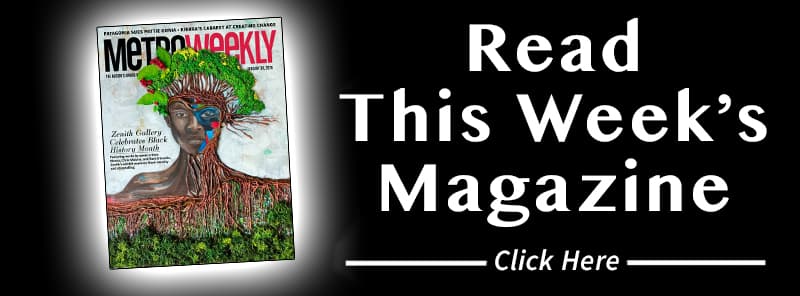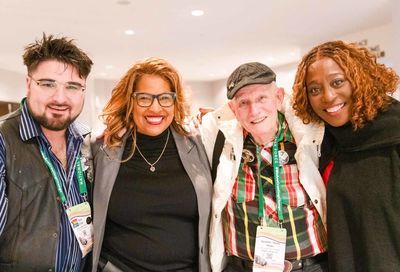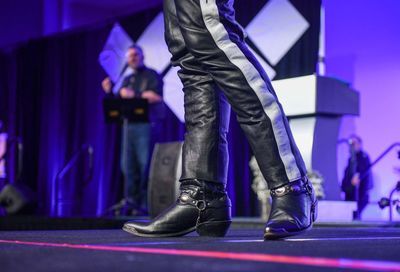LGBT advocates praise Supreme Court decision upholding Obamacare
Groups say the Affordable Care Act benefits LGBT consumers in a number of different ways

The Supreme Court’s decision on Thursday to keep intact the Affordable Care Act (ACA) is being hailed as a win for the LGBT community, both nationally and locally.
The court’s decision dealt with the original intent versus the literal interpretation of a contested phrase in the ACA, often referred to as “Obamacare.” The court ruled that low-income people who qualify for subsidies to help them purchase health insurance in states that have, for partisan reasons, failed to set up their own state healthcare exchange are eligible to receive those subsidies even if they purchase insurance through federally-run exchanges. The subsidies were a key ingredient to reducing the uninsured population by making sure health care could be affordable to low-income people.
Calling the court’s ruling a “crucial victory” for health care, Rea Carey, the executive director of the National LGBTQ Task Force, said the ACA is “critical” in providing low-income individuals access to quality health care, which, in turn, could help address and combat health disparities that exist between LGBT individuals and their heterosexual counterparts.
In a blog post, the Human Rights Campaign (HRC) noted that had the Court ruled the opposite way, many LGBT people would have no longer been able to obtain the subsidies, thus increasing the amount they had to pay in monthly premiums for their coverage. As a result, those people would have been forced to drop their insurance. According to HRC, many LGBT people rely on the subsidies to access health care and to have prescriptions such as hormone therapy, HIV medications, fertility treatments and contraception covered under the ACA. HRC also noted that the decision significantly impacts transgender people and LGBT people of color, who are more likely to earn less than their cisgender or white counterparts.
Local community health center Whitman-Walker Health, which specializes in LGBT-competent care and HIV/AIDS treatment, celebrated the court’s decision.
“We are gratified and thrilled that the Supreme Court has once again saved the Affordable Care Act from efforts to destroy it,” said Dan Bruner, WWH’s senior director of policy. “The decision by the Chief Justice and a 6-3 majority cuts right to the heart of the issue: the federal subsidies that help middle- and lower-income individuals and families to afford health insurance must be available in every state for healthcare reform to work. This is wonderful news for the nation, particularly for people living with HIV, the LGBT community, and others who have suffered from lack of adequate, affordable health insurance for so long.”
The news was particularly welcome in Virginia, which was one of the states where both the former governor, Bob McDonnell, and the legislature patently refused to set up a state insurance exchange. Had the decision been repealed, Virginians in particular would have seen their premiums rise because they had been forced into purchasing from the federal exchange, which would have made them ineligible to receive subsidies. Attorney General Mark Herring (D) both reversed the state’s position as taken by former Attorney General Ken Cuccinelli (R), argued in favor of the subsidies before the U.S. 4th Circuit Court of Appeals, and lead 21 other states and the District in writing an amicus brief defending the subsidies when the case went before the Supreme Court.
“I’m really proud that the court agreed with us, but mostly I’m relieved that millions of Americans dodged a bullet,” Herring said in a press call. “This lawsuit was a legal Hail Mary that was just playing games with the healthcare of nearly 300,000 vulnerable Virginians, nearly 8 or 9 million Americans, as well as the stability of the health insurance markets in at least 34 states, including Virginia, and maybe the entire country.
“In Virginia, the average annual assistance at stake was more than $3,000. That’s literally the difference between having healthcare and going without for hundreds of thousands of Virginia families,” Herring added. “If this case had gone the other way, there could have been complete chaos. Hundreds of thousands of Virginians, and millions nationwide, many of whom are receiving health insurance for the first time, would have been set adrift. And it would have harmed all Americans as states lurched into the death spiral of rising costs and declining enrollment.”
The commonwealth’s LGBT rights organization, Equality Virginia, also praised the decision, calling it a “big win” for the LGBT community.
“Obamacare has proven itself to be a good step forward by ensuring millions of Americans, many of whom identify as gay or transgender, have access to the care they need,” said Equality Virginia Executive Director James Parrish. ” This isn’t the end of the conversation, though: gay and transgender — especially transgender — individuals still face challenges in accessing affordable, inclusive, and high quality healthcare.”
Support Metro Weekly’s Journalism
These are challenging times for news organizations. And yet it’s crucial we stay active and provide vital resources and information to both our local readers and the world. So won’t you please take a moment and consider supporting Metro Weekly with a membership? For as little as $5 a month, you can help ensure Metro Weekly magazine and MetroWeekly.com remain free, viable resources as we provide the best, most diverse, culturally-resonant LGBTQ coverage in both the D.C. region and around the world. Memberships come with exclusive perks and discounts, your own personal digital delivery of each week’s magazine (and an archive), access to our Member's Lounge when it launches this fall, and exclusive members-only items like Metro Weekly Membership Mugs and Tote Bags! Check out all our membership levels here and please join us today!
























You must be logged in to post a comment.